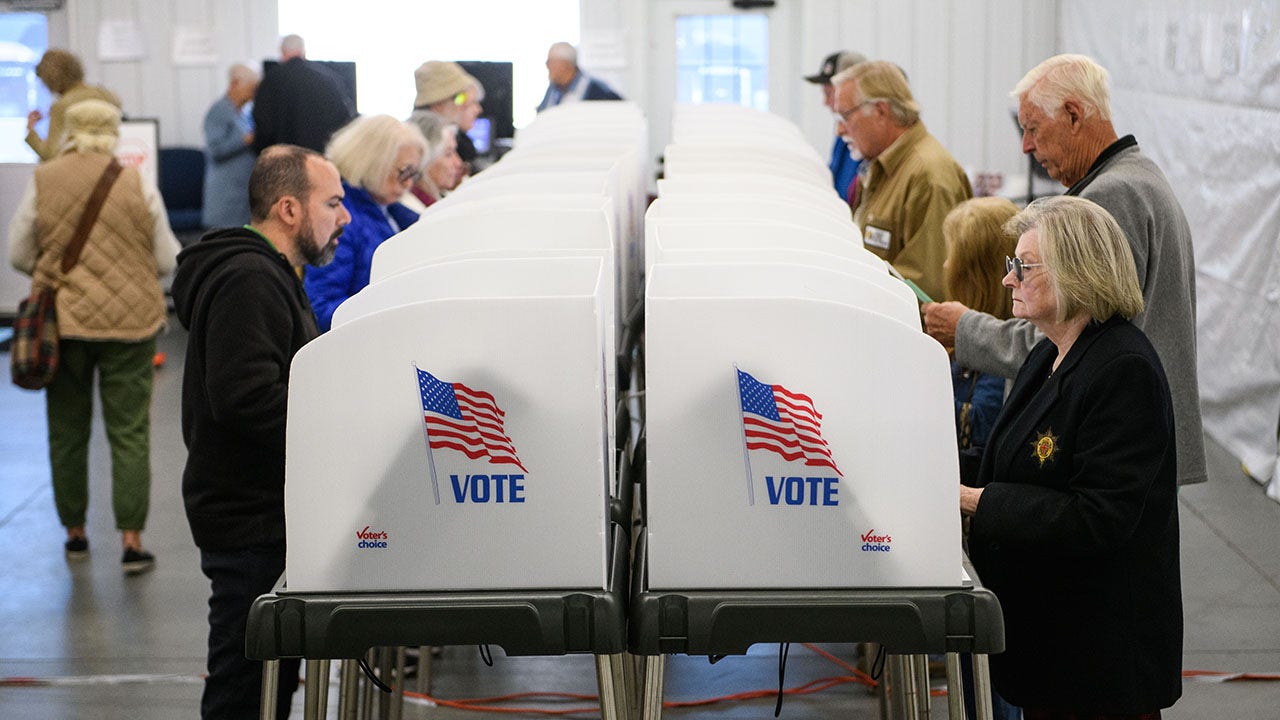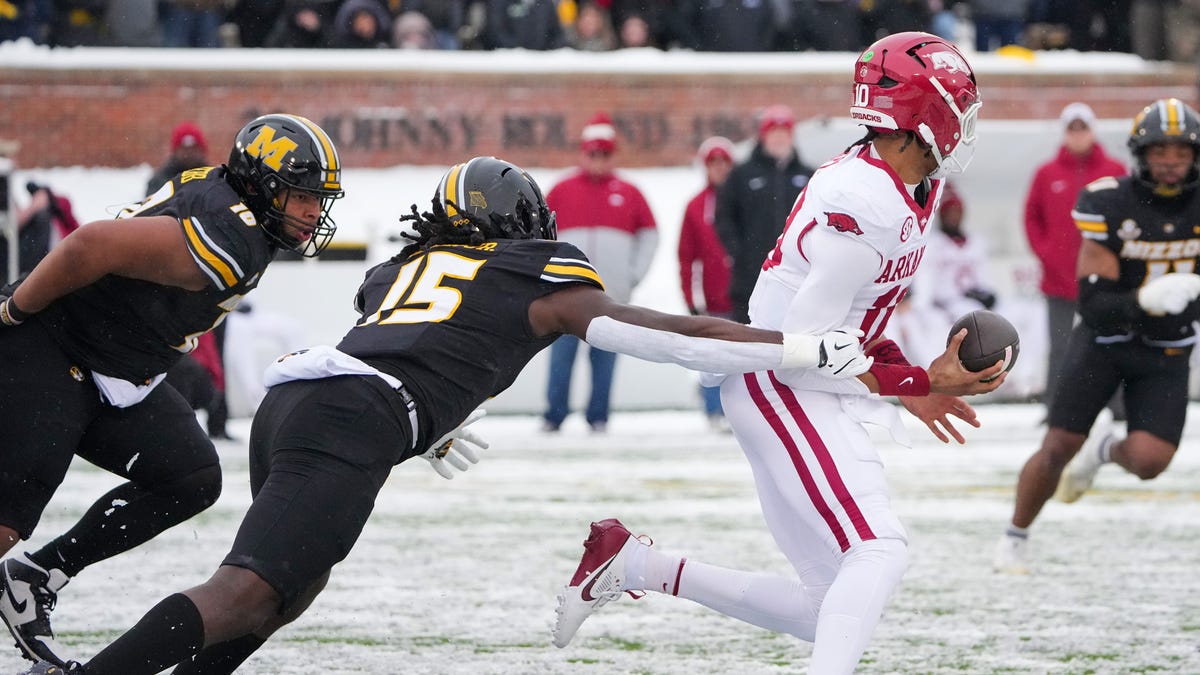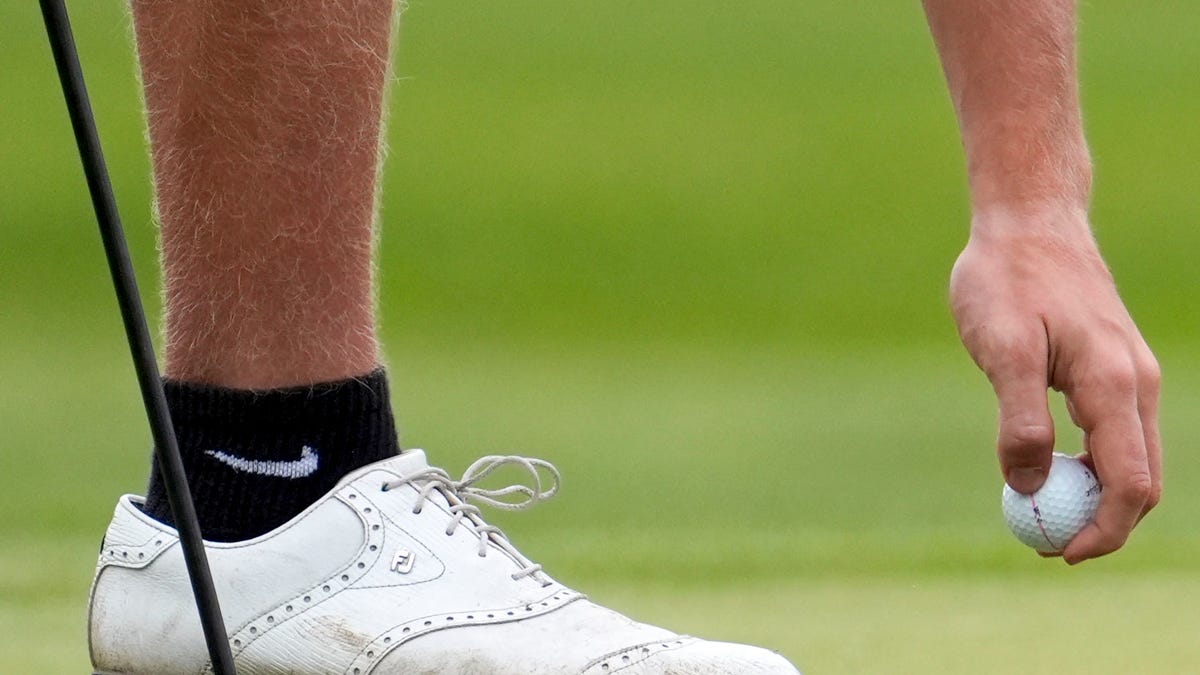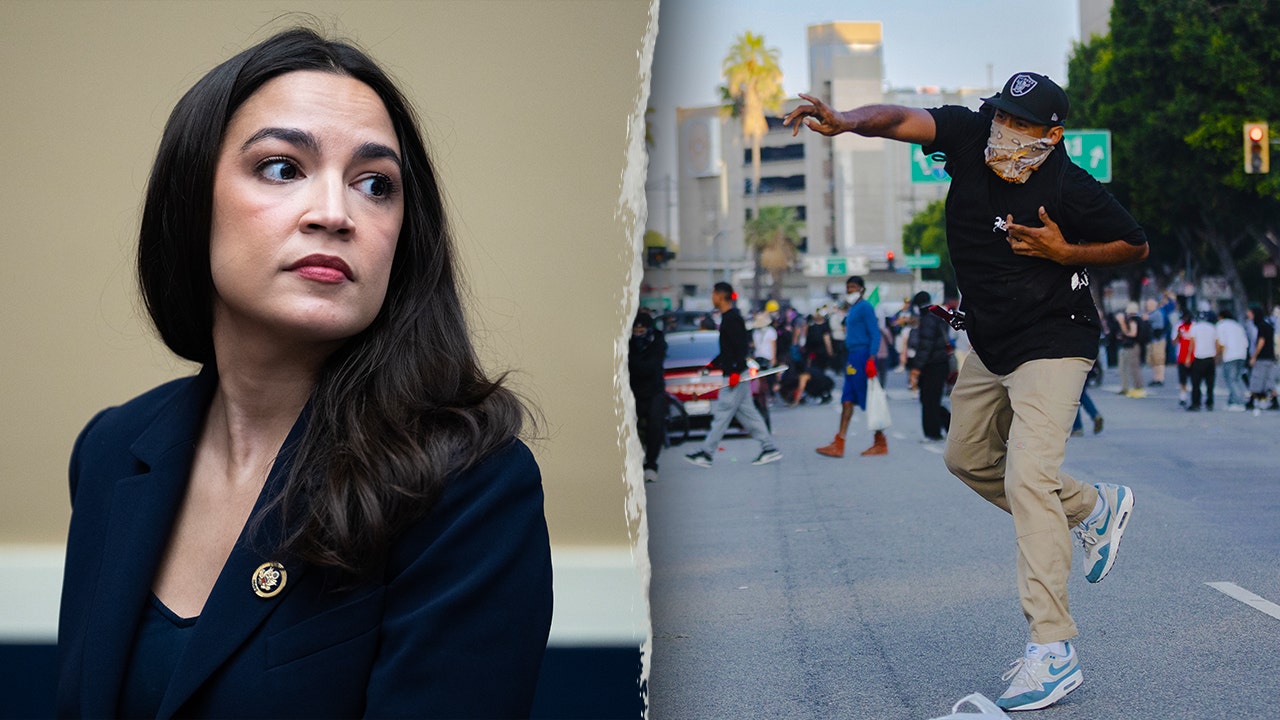Indianapolis, IN
Over more than 100 years, 9 women have raced the Indianapolis 500 and the push for more has stalled

INDIANAPOLIS (AP) — Katherine Legge remembers returning to the Indianapolis 500 for the second time a decade ago, and the unmistakable feeling of satisfaction she experienced walking through Gasoline Alley and knowing that she was not alone.
For the third time in four years, a record-tying four women were in the 33-car field that day.
“That was the era of Sarah Fisher and then Danica Patrick came along and then, you know, there’s me and Simona de Silvestro and I just thought it would kind of snowball and grow,” Legge recalled, before pausing for a moment. “But it hasn’t.”
Instead, Legge is the only female driver who will start “The Greatest Spectacle in Racing” on Sunday.
The women’s movement that began when Janet Guthrie qualified for the first time in 1977, gained traction with Lyn St. James in the 1980s and hit its stride with the arrival of Patrick in the early 2000s has stalled out. By 2020, not only was there no female driver in the field for the first time since 1999, but none even tried for the first time since 1991.
De Silvestro started the 2021 race for an all-woman team, Paretta Autosport, but there were no women again last year, and Legge struggled to qualify this year before wrecking in practice. The 42-year-old Briton will start in the penultimate row in the 107th running of the race that has seen only nine women on the grid over more than a century.
“It’s really bad, isn’t it?” Legge asked. “Because I thought there was going to be more. I mean, there’s only been nine of us that have run the Indy 500. I hope one year there’s nine of us on the grid, you know?”
It doesn’t appear that will happen anytime soon.
Jamie Chadwick is the only woman this season in Indy NXT, the top rung in IndyCar’s feeder system, and she’s struggled for Andretti Autosport after arriving from the now-inactive, all-woman W Series, which had aimed to provide female drivers more racing opportunities. Lindsay Brewer is likewise alone a step down at the USF Pro 2000 level, and few young women occupy the highest levels of European karting, which is often the first step for drivers with Formula One aspirations.
So why did the slowly building momentum for women at Indianapolis Motor Speedway come to such a crashing halt?
At the entry level, where drivers are sometimes no older than 6 and girls are vastly outnumbered by boys, they are often subjected to intense bullying. More than once, Legge recalled, it was so bad that she nearly quit.
“The desire has to be so high to go through all the hardships that you have to go through to do it,” she said, “that I think a lot of them, it’s just too much. But the ones who do make it through, I think that lesson helps them down the line in racing.”
At the highest levels, drivers often must secure their own sponsorship to help offset the immense funding required of an IndyCar program. That can be difficult for women in the male-dominated sport.
“Men are getting sponsorship and women can’t. That sounds unfair but who cares about unfair?” Guthrie told The Los Angeles Times in 1987 and there’s little evidence that anything has changed in a sweeping way. “A successful woman driver will get 10 times the attention that a man will get. So now, what really is important? It keeps coming back to the good ol’ boy network.”
Andretti Autosport is at the forefront of driver development, both men and women, and has qualified more women for the Indy 500 than any team: Patrick on four occasions and de Silvestro and Ana Beatriz once apiece.
“I think it’s important for the sport,” team owner Michael Andretti said. “Yeah, we’re still searching for that next Danica. And I will say that there’s no reason why, you know, we can’t have a competitive woman now.”
Andretti acknowledged that it’s harder for them to succeed, though, and brings up an entirely different reason. The car itself these days is physically demanding to drive, and young women in particular sometimes struggle to muscle it around the track.
But give a woman a fast enough car and they can be every bit as good as the men.
“My time in IndyCar felt like I got a really great shake at it, and I drove for a lot of great teams. But it’s kind of like a stock market: It goes up, it goes down, it goes up, it goes down,” Patrick said. “It, trajectory-wise, tends to be going in an upward fashion, but there will always be these lulls. We can go from five women in the field to none, or one this year.”
Fisher has more Indy 500 starts than any other woman with nine, and for many years she owned her own team.
“If you have good people with good opportunities, that’s great,” Fisher said, “but you can’t force it because there’s too high a risk in this sport.”
That was evident in practice Monday, when Legge was unable to slow as others did in front of her. She hit the rear of Stefan Wilson’s car, sending both into the fence. Legge walked away and her team repaired her car for Friday’s final practice, but Wilson was left hospitalized with a fractured vertebrae; Graham Rahal has replaced him in his car.
That hasn’t dampered the expectations of Legge, whose entire Rahal Letterman Lanigan team has struggled this week. After all, she knows that women will be watching how she does on Sunday.
“It’s really cool to be back here. I forgot how crazy busy it is with so many demands on your time, and I forgot how little time that you get in the car. But it’s amazing,” Legge said. “I just am obsessed with making the most of the opportunity so I can come next year, right? Like, I really want to do as well as that car will allow.”
___
AP auto racing: https://apnews.com/hub/auto-racing and https://twitter.com/AP_Sports

Indianapolis, IN
Up to 1,000 protest ICE outside Pacers-Thunder finals game in Indianapolis
People gather in Downtown Indianapolis outside Pacers game to protest ICE
More than 1,000 people gathered on Wednesday night, an organizer said, as protests against ICE continue to spread across the country.
This story has been updated with police estimates of the crowd size.
The roar of cheers and chants could be heard outside Gainbridge Fieldhouse just before NBA final Game 3 between the Pacers and Thunder the evening of June 11, but it wasn’t the sound of Pacers fans.
It was people gathered to protest ICE raids in Indiana — the latest to spring up across the country since such protests began in Los Angeles amid increased ICE activity under President Donald Trump.
The crowd swelled to more than a thousand people before it broke up, organizers said, although Indianapolis police put the count at 500.
Hours before the protest, images and rumors online indicated ICE raids may have been happening in nearby Lawrence, though the Lawrence Police Department said it wasn’t aware of any U.S. Immigration and Customs Enforcement actions in the city. The rumors prompted Latino advocacy groups to share the flier of the planned Gainbridge protest, organized by the Indy Liberation Center.
“No is coming to save us. You have to show up for yourselves,” Carolina Castoreno, cofounder for Alliance for Latino Migrant Advocacy, told the crowd outside Gainbridge.
Downtown Indy resident Jaqueline Montez, 30, said it was important to her to protest now rather than waiting for planned No Kings Day protests here and elsewhere June 14.
“We’re being seen by the rest of the world,” Montez said. “We’re being noticed today.”
The demonstration remained nonviolent, and one speaker reminded demonstrators not to antagonize the police.
Some basketball fans on their way to the game responded to the protesters with chants of “USA.”
Parent Rachel Moore, 46, said she attended the protest after her daughter told her about it. Asked how she made it downtown given traffic, she said, “I know a spot,” and laughed.
“The most dangerous immigrants arrived in 1492,” said one sign held by a protester. Other signs said “ICE out of Indy now” and “Power to the workers not the billionaires.”
A little over a dozen Indianapolis Metropolitan Police officers were monitoring the protest, which was organized by the Indy Liberation Center. The members of IMPD’s emergency response group, specially trained in crowd control, had pepper ball guns.
Protesters began by lining up in front of businesses across Pennsylvania Avenue from Gainbridge. They chanted phrases including, “IMPD, KKK, IOF, it’s all the same!”
About 8 p.m. — a half hour before tipoff — the growing group protesting ICE filled Pennsylvania Avenue, marching north. The crowd size peaked around the time of the of 8:30 p.m. game tipoff and then quickly dissolved.

See the sights and sounds around Gainbridge Fieldhouse for Pacers Game 3
Fans and people protesting ICE raids brought thousands to Downtown Indianapolis on Wednesday night. Here’s what it looked and sounded like.
Did ICE conduct raids in Lawrence?
Earlier June 11, IndyStar reporters spoke with neighbors near 42nd Street and Richelieu Road in Lawrence and confirmed that law enforcement activity had occurred in the area about 7 a.m.
The owner of a self-serve laundry in the area also said they caught a video of law enforcement activity.
Lawrence Police Department said it was not involved in any ICE arrests June 11, and ICE officials hadn’t responded to IndyStar questions about it as of the time of publication.
Indianapolis, IN
Mayor Hogsett dines out after skipping homelessness event amid harassment claims

INDIANAPOLIS (WISH) — I-Team 8 tracked down Indianapolis Mayor Joe Hogsett eating lunch at a downtown restaurant on Tuesday after deciding not to attend a press conference about homelessness in the city. It comes less than 24 hours after Lauren Roberts — who says she experienced sexual harassment and grooming from the mayor’s former top aide, Thomas Cook — was thrown out of a City-County Council meeting.
At 1 p.m. on Tuesday, Hogsett was scheduled to attend a press conference to announce a new initiative with his Leadership Council on Homelessness.
Just before 11:30 a.m., his office announced he would no longer be attending the conference.
“In light of recent events, in order to keep the focus on supporting our unhoused neighbors, this afternoon’s press conference about the Streets to Home Indy initiative is postponed,” his office told News 8.
At around 12:30 p.m. Tuesday, I-Team 8 found the Democrat mayor was eating lunch at The Oakmont, a popular downtown restaurant. The restaurant is a few blocks away from the press conference he was set to attend.
Maggie Adams-McBride is a former employee of Hogsett’s, having worked as a project manager in his office.
In early May, she resigned from her post, saying Hogsett did not adequately address cases of abuse and harassment.
“I am deeply concerned about how the administration handles harassment reports, including my own and those of colleagues,” Adams-McBride said in her resignation letter. She never received a response from Hogsett.
She also spoke at Monday night’s City-County Council meeting, joining calls for his resignation.
“He has not been held accountable for internal harm experienced by his workers,” Adams-McBride said at the meeting. “We have heard from survivors who have experienced retaliation, harassment, and systemic neglect, and these patterns don’t just exist in isolation.”
Following the meeting, Adams-McBride went to the restaurant on Tuesday.
When Hogsett left the restaurant, I-Team 8 was across the street and attempted to ask him why he had chosen not to attend the press conference and asked if he had a response to the City-County Council meeting Monday night.
He did not answer any questions at the restaurant.
Later on Tuesday afternoon, I-Team 8 sat down with Hogsett at the City-County Building for an interview and asked him about his interaction with Adams-McBride.
“I was having lunch and so she came up and we did have a conversation,” Hogsett said. “It’s unfortunate that she’s left the office, because I thought she was a wonderful employee, but she’s moved on to different things and I just said, simply wished her the best.”
I-Team 8 also asked the mayor if he was watching the City-County Council meeting and saw Roberts being thrown out of the meeting.
“I thought it was incredibly regrettable,” Hogsett said.
I-Team 8 also asked Hogsett what he has to say to current employees who are fearful of reporting harassment within his administration.
“I think it’s important that we continue to evolve the process for protection for all employees, and that includes confidentiality and anonymity, if they do have concerns,” Hogsett said.
As previously reported, I-Team 8 asked Hogsett if he has plans to resign.
“No, I don’t,” Hogsett said. “We’ve for two and a half years left in this term, and we have a lot to accomplish.”
Previous coverage
Indianapolis, IN
‘I won’t say I was perfect,’ but former IMPD chief Randal Taylor was ‘Right one for the job’
Outgoing IMPD Chief Taylor remembers hard times, good changes
IMPD Chief Randal Taylor looks at his past four years and onto the future as he gives a final interview the IndyStar.
- Taylor, 60, is retiring from IMPD after a 38-year career in law enforcement
- Taylor was IMPD chief from 2020 to 2024.
A red light, a speeding ticket, and a persistent cop.
That’s what former Indianapolis Metropolitan Police Department Chief Randal Taylor says led him to a career in law enforcement. Taylor, who grew up in Illinois, said he ran a red light in Champagne and was pulled over by an officer who would leave a lasting impact.
“His name was Richard Atkins,” said Taylor, now commander of IMPD’s Victim Services Unit. “He gave me a ticket and everything. At that time, I was working in a White Hen Pantry, and he would come in and just start talking to me and ask me about a career in law enforcement. I reminded him that he gave me a ticket, and he’d be like, ‘Well, did you learn a lesson from it?’”
That one question led Taylor to 38 years in law enforcement, including 32 years in Indianapolis. He served as IMPD chief from 2020 to 2024, leading the department during a global pandemic and civil unrest against police brutality after the killing of George Floyd by Minnesota police officer Derek Chauvin.
He stepped down to make way for the current chief, Christopher Bailey, and has been a commander for the last year. Now Taylor is set to retire on June 16.
‘I made some mistakes:’ A pandemic, protests and police relations
Since stepping down as chief, Taylor’s role within the department included working with the chaplain’s office, Crime Stoppers, victim assistants, and the non-fatal shooting advocates. They’d report to him with the effort of ensuring all victims were resourced with support and help.
“I still wanted to make sure that I was serving people,” Taylor said. “Some communication between family members and detectives isn’t always where you want it to be, so I try to make sure that we do what we can. Sometimes we can’t give them the answers that they want, but we at least make sure they’re aware that we’re here for them.”
When he reflects on his time as chief, Taylor said he always strived to do what’s right and fair for both the community and members of the department.
“I won’t say I was perfect,” Taylor told IndyStar.
Before the world was reacting to George Floyd’s death, Indianapolis was dealing with its own officer-involved shooting that caused community outcry. Dreasjon Reed, 21, was fatally shot by Officer DeJoure Mercer during a foot pursuit in May 2020.
Taylor said, “I made some mistakes” when it came to Reed’s case, which he regrets.
“I was still new to the chief thing, you know,” Taylor said. “People were telling me, ‘You just need to be quiet, don’t talk about it,’ and all this kind of stuff. Well, the problem with that was the public started filling in their own narrative, and they were wrong in that narrative.”
Taylor felt that if he had gotten ahead of the case with facts first, a false narrative surrounding Reed’s shooting wouldn’t have stuck with people’s already mistrust of the police.
“It’s unfortunate that young man lost his life, but one of the things I was glad that I did was encourage the state police to handle that investigation. ‘Cause I, myself, and Deputy Chief (Kendale) Adams were initially in the pursuit.”
And amongst the national outcry on police brutality, Taylor remembers being on Luger Plaza with protesters during protests downtown.
“‘Cause I didn’t like what I saw either,” Taylor said. “I’ve seen a lot of things, good and bad, in law enforcement.”
He said his decision to step down as chief wasn’t a direct result of criticism heard from community members.
“No one forced me out. It’s something I prayed about for a long time, and so it just so happened to fall close to their criticisms,” Taylor said.
Policies implemented during Taylor’s tenure
Like many departments across the United States, IMPD implemented body-worn cameras in 2020, and more than 1,400 body-worn cameras have been distributed and equipped to the department’s officers. In 2020, the department began publicly releasing critical incident videos involving any use of force by officers.
Before beginning to release these videos, Taylor met with a community group that reviewed and provided feedback on the videos and the process for developing them.
The Use of Force Review Board reviews officers’ use of force and then determines whether their actions violated IMPD policies. This begins once prosecutors and police have completed the criminal investigation of an incident. Taylor, with the input from the community, rewrote the Use of Force policy to include provisions guiding officers’ proportionate use of force, the duty to intervene, a requirement to provide medical aid, and strictly prohibiting the use of chokeholds.
He also prohibited the use of no-knock search warrants after Breanna Taylor was shot and killed by Officer Jonathan Mattingly during a raid on her home in Louisville, Kentucky, in March 2020.
Under Taylor’s leadership, IMPD’s Use of Force Board and General Orders Boards were created. The General Orders Board examines police policies and considers possible changes. Both have a majority civilian representation.
Taylor’s thoughts on current IMPD Chief Chris Bailey
Taylor, who worked as assistant chief under two different chiefs before him, said that Bailey was always in the mix.
“You know, Chris and I go way back,” Taylor said. “He’s different from me. I, myself, am more of a people person. Not saying that he’s not, but some people have just said earlier today, they thought I was the right man for the job at that particular time. I’d say the same thing about Bailey now.”
So, what’s next for the former chief?
Taylor said he originally had no desire to climb the ranks to become a chief. He only wanted to be a detective. Taylor and his wife moved to Indianapolis in 1993, and he worked across units, including undercover narcotics, child abuse, internal affairs, and financial crimes.
The Indianapolis Police Department and the Marion County Sheriff’s Office were separate agencies at that time.
He was a sergeant and lieutenant captain before the departments merged in 2007, and from there, he rose through the ranks before the mayor offered him the position of chief.
Unsurprisingly, Taylor said he still wants to serve the community in some capacity, whether with the police department or a sheriff’s office.
The former chief, who turned 60 this year, said outside of policing, he’s into motorcycles. He’s also looking forward to spending more time with his family, including his two sons and daughter.
Jade Jackson is a Public Safety Reporter for the Indianapolis Star. You can email her at Jade.Jackson@IndyStar.com and follow her on X, formerly Twitter @IAMJADEJACKSON.
-

 West5 days ago
West5 days agoBattle over Space Command HQ location heats up as lawmakers press new Air Force secretary
-

 Alaska1 week ago
Alaska1 week agoInterior Plans to Rescind Drilling Ban in Alaska’s National Petroleum Reserve
-

 Technology1 week ago
Technology1 week agoMicrosoft will finally stop bugging Windows users about Edge — but only in Europe
-

 Politics1 week ago
Politics1 week agoRed state tops annual Heritage Foundation scorecard for strongest election integrity: 'Hard to cheat'
-

 World1 week ago
World1 week agoTwo suspected Ugandan rebels killed in Kampala explosion
-

 Politics1 week ago
Politics1 week agoTrump pushes 'Big, Beautiful Bill' as solution to four years of Biden failures: 'Largest tax cut, EVER'
-

 Culture1 week ago
Culture1 week agoDo You Know the Jobs These Authors Had Before They Found Literary Success?
-

 World1 week ago
World1 week agoEU trade chief to meet US counterpart in Paris amid tariff tensions


















